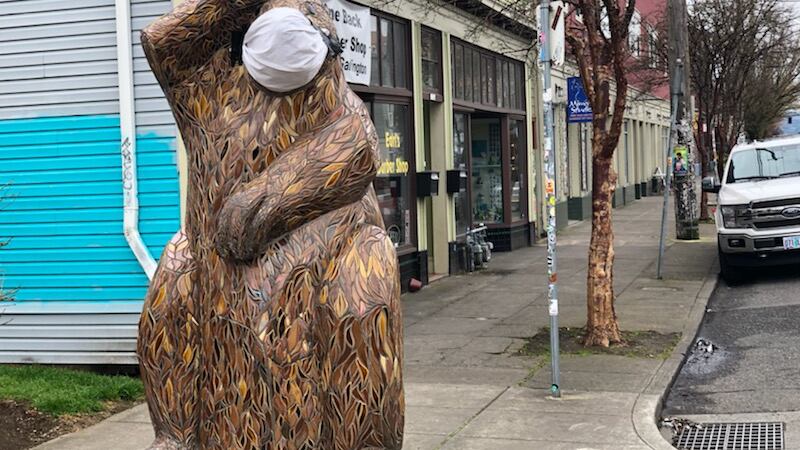Baker County Circuit Judge Matthew B. Shirtcliff upheld his decision to nullify Gov. Kate Brown's pandemic-related emergency orders in a three-sentence decision issued May 26, setting the stage for a showdown next month at the Oregon Supreme Court.
"I have elected to stand by my original ruling," Shirtcliff wrote in the filing. "I will not be vacating my May 18 Order Granting Pleliminary Injunctive Relief and Denying Motion To Dismiss or taking other actions."
The state now has until May 28 to respond to Shirtcliff's order. After that, the plaintiffs' attorneys have until June 2 to file briefs with the Supreme Court. Once the plaintiffs' attorneys Ray Hacke and Kevin Mannix file their briefs, the court may issue a decision or proceed to hear oral arguments from both parties.
Until any of that happens, Brown's executive orders are still in effect: The Supreme Court issued a stay on Shirtcliff's ruling on May 18.
The lawsuit in question, Elkhorn v. Brown, poses the most serious legal challenge to Brown's pandemic-related emergency powers, which went into effect March 7. The plaintiffs argue that Brown violated a state statute which says her emergency powers expire after 28 days. Nearly 50 plaintiffs, including 15 churches, three lawmakers and a handful of religious leaders, signed onto the May 6 lawsuit.
The Elkhorn plaintiffs aren't the only religious groups challenging Gov. Brown in court. Another pair of churches—Edgewater Christian Fellowship in Grants Pass and Roseburg Church of God of Prophecy—filed a lawsuit in federal court on Tuesday against Gov. Kate Brown, Oregon Health Authority director Patrick Allen and a few other public officials.
Unlike Elkhorn, the churches in today's filing argue almost exclusively that Brown's stay-home orders impinge on their religious freedoms. This argument has been tried—usually without success—in states nationwide since last month.
The two churches say they plan to hold worship services this upcoming Sunday, May 31, regardless of the governor's orders prohibiting religious gatherings of 25 people or more.
"The Church sincerely believes that online services and drive-in services do
not fully meet the Bible's requirement that the Church meet together in person for corporate worship," the complaint says. "Plaintiffs sincerely believe that the Bible teaches the necessity of gathering together for corporate prayer and worship and that such assembly is necessary and good for the Church and its members' spiritual growth."
The plaintiffs call Brown's orders a "religious ban" and compare the requirements imposed on churches to those of restaurants and cannabis shops, noting that the latter are illegal under federal law.
The churches lay out how they plan to enable social distancing during their worship services on Sunday, including requiring attendees to wear face masks, holding three separate services to reduce crowds and posting hand sanitizer stations throughout. (The announcement of how they plan to violate the governor's order, and their action outside an ongoing case, suggests they're seeking attention as much as a day in court.)
"Singling out churches for special punishment while allowing others to have greater freedom not only makes no logical sense, it's clearly unconstitutional, just as others have warned the governor," Ryan Tucker, attorney for the plaintiffs, said in a press release. "We support authorities' efforts to prioritize the public's health and safety, but people of faith should be free to assemble if other groups are free to assemble."

